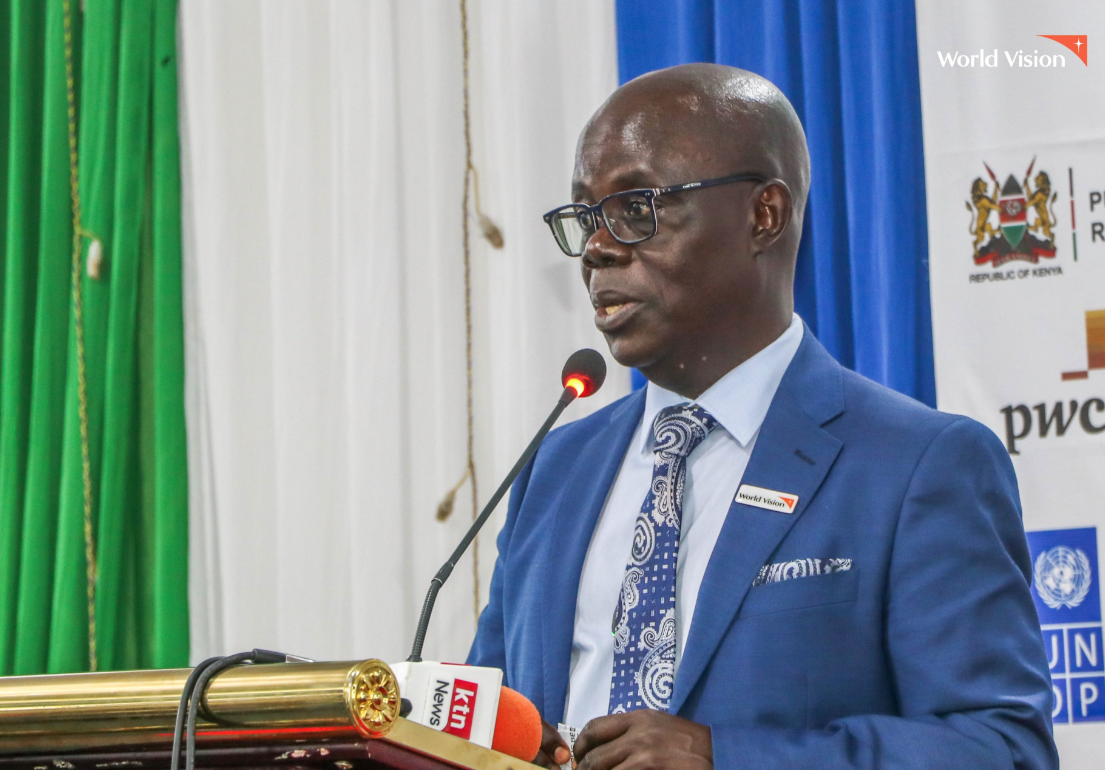

World Vision Kenya has called for the expansion and stronger support of school meal programmes across the country as Kenya joins the rest of the world in marking World Food Day 2025.
The child-focused humanitarian organisation urged the government, communities, businesses, and individuals to invest more in climate-smart agriculture and nutrition programmes, emphasising that ending hunger requires collective action.
“As Kenyans, we have the power and responsibility to end hunger. But we can’t do it alone,” said Gilbert Kamanga, National Director, World Vision Kenya.
“We must work hand in hand with the government, communities, donors, and families to make sure every Kenyan has enough good food. The choices we make today will shape the future our children inherit.”
World Vision Kenya noted that around 15.5 million people in Kenya are severely food insecure, with many families going days without enough to eat.
The situation is particularly dire for children — an estimated 800,000 children under five currently need treatment for malnutrition.
“We also know that school meals are one of the best ways to fight child hunger and help kids stay in school,” the organisation said, stressing the importance of investing in programmes that provide consistent nutrition to learners.
Kenya currently ranks 90th out of 125 countries on the Global Hunger Index, reflecting the seriousness of the problem.
Kamanga added that the economic burden of malnutrition is immense, costing the country nearly Sh374 billion each year, equivalent to about 7 per cent of GDP.
“Beyond the human cost, malnutrition is expensive for the country,” Kamanga noted.
“At World Vision Kenya, we believe every child deserves to grow up healthy and strong. That can’t happen without good food. So, we work closely with families, communities, and government partners to build lasting solutions.”
Globally, the hunger crisis remains alarming. In 2024, about
673 million people did not have enough to eat, while more than 2 billion people
faced serious food insecurity.
Africa continues to bear the brunt, with over 20 per cent of the population struggling with hunger.
“This shows that we need urgent, coordinated action if we want to reach zero hunger by 2030,” Kamanga emphasized.
World Vision Kenya participated in national World Food Day celebrations in Homa Bay County, joining other stakeholders in highlighting the need for sustainable food systems.
This year’s theme, “Hand in Hand for Better Foods and a Better Future,” calls for collective action — from governments to communities and individuals — to address hunger and malnutrition both globally and here in Kenya.
Collective action across 150 countries worldwide, in up to 50 languages, is what makes World Food Day one of the most celebrated days of the UN calendar.
Hundreds of events and outreach activities bring together governments, municipalities, businesses, Civil Society Organisations, the media, the public, and even youth.
They promote worldwide awareness of hunger and promote action for the future of food, people, and the planet.












